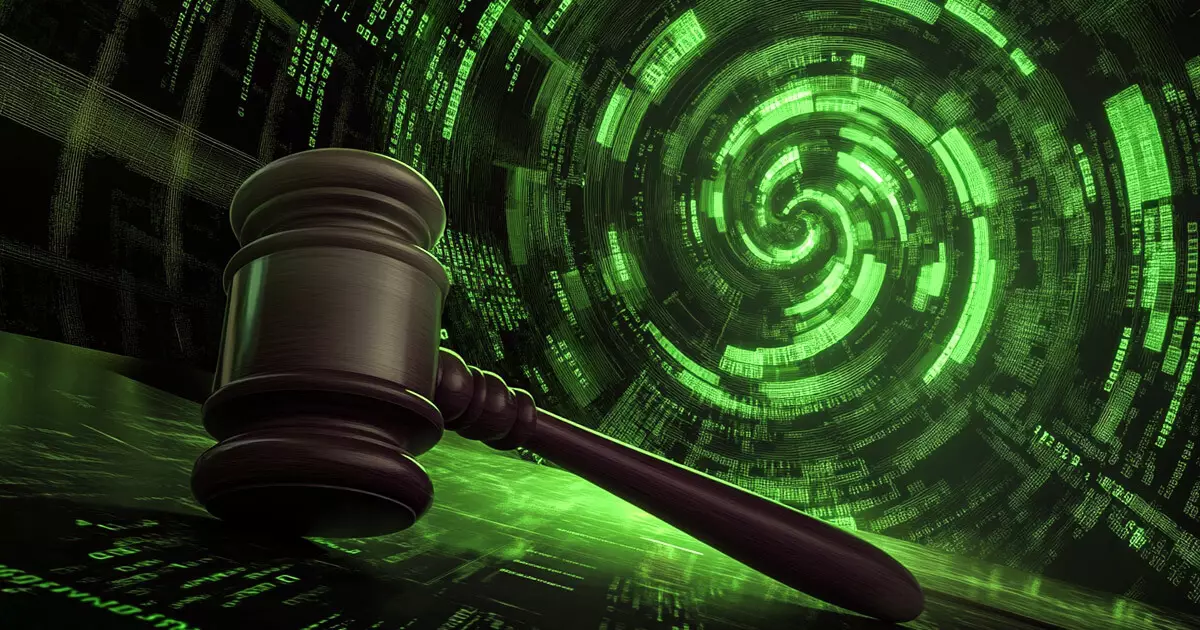The recent ruling by Judge Katherine Polk Failla concerning the commercial use of code in cryptocurrency protocols such as Tornado Cash has sparked heated discourse within the crypto community and beyond. On September 26, in a landmark decision issued from the Southern District of New York, the court ruled against claims that deploying such code should be considered an act of free speech protected under the First Amendment. This development not only shapes the fate of Tornado Cash’s developer, Roman Storm, in his impending trial but also sets critical legal precedents that could operate as a double-edged sword for the broader cryptocurrency industry.
One of the most significant outcomes of Judge Failla’s ruling is the classification of crypto protocols, specifically Tornado Cash and Samourai Wallet, as money transmitters, irrespective of the developer’s control over the funds in transmission. This perspective mirrors traditional finance where entities facilitating monetary transactions are held accountable under the Bank Secrecy Act (BSA) guidelines. The ruling stipulates that operating a crypto protocol engages similar responsibilities as a conventional money transmittance operation, thus intertwining the fate of software developers with contentious financial regulations.
The implications of this decision extend beyond Tornado Cash. It could also alter the operational dynamics of other decentralized platforms that facilitate transfers and transactions. The court’s rejection of the argument that the expressive nature of code protects developers provides clarity but poses risks to developers looking to innovate without fear of legal repercussions.
Challenges Faced by Crypto Developers
During the pre-trial phase for Roman Storm, who faces allegations of money laundering and operating an unlicensed money-transmitting business, the stakes are high. His assertion that writing code is a form of protected speech was dismissed, emphasizing that the execution of functions linked to financial transactions occupies a different legal realm. The ramifications of the ruling may result in heightened scrutiny for other individuals involved in creating decentralized finance (DeFi) technologies and protocols.
Industry experts argue that if the ruling remains unchanged, developers could be increasingly liable for the unintended consequences of their protocols or applications, even when they lack direct involvement in the management of transmitted funds. This potential liability raises an alarm about innovation within the decentralized space as new developers might hesitate to engage in cryptocurrency projects due to perceived legal risks.
The reaction from the crypto industry has been unmistakably critical. Organizations like the DeFi Education Fund and individual figures such as Amanda Tuminelli and Jake Chervinsky have condemned the ruling. Tuminelli expressed concerns that the precedent could amplify developer liability in unprecedented ways, foreseeing dire consequences not just for Storm but also for software developers across various sectors. Chervinsky described the ruling as an “assault on the freedom of software developers,” indicating the potential implications for the freedom of expression in coding practices and innovation.
As the appeal process unfolds, the broader cryptocurrency community remains vigilant, aware that the ruling is not just a verdict in one trial but potentially a set of legal standards that could hamper flexibility and innovation in DeFi. The ruling also perpetuates a dialogue on how governments and regulators might adapt existing financial laws to the realities of digital currencies, an area still rife with uncertainty and potential conflict.
The Path Forward
As the legal landscape continues to evolve, many eyes will be on the upcoming trial for Roman Storm, scheduled for December 2. The outcomes of this case could either reinforce the current ruling or challenge the regulatory status quo for cryptocurrency developers. Public discourse surrounding regulation will remain critical, as the push for clarity on the legal implications of cryptocurrency and blockchain technology intensifies.
In the interim, the fallout from Judge Failla’s decision will likely linger, motivating a robust debate on what constitutes freedom of expression in a digital world where coding becomes both a medium and a method of financial transaction. The future of many crypto protocols hangs in the balance, teetering on the edge of legal interpretations that may dictate the trajectory of this burgeoning sector for years to come.


Leave a Reply